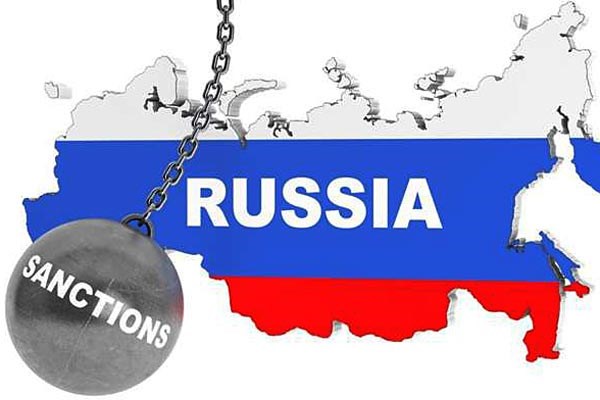Media: Kremlin considering setting up special cash settlement center to provide safety net against US sanctions for Russian banks
Two sources in Russian state departments told RBC that a settlement and cash center based on the Federal Treasury could become one of the state defense order’s options for financing through authorized banks. “Such an option is being discussed by the Russian authorities,” a source at one of the banks that works with the state defense order told RBC. According to the source, this is one of the options under consideration for insurance against the risk of a possible increase in anti-Russian sanctions against the banks that work with the state defense order.
None of the governmental departments were willing to discuss the options for circumventing possible sanctions. The Federal Treasury, Central Bank and the Ministry of Finance did not respond to RBC’s questions, and the Defense Ministry refused to comment on the situation.
The Federal Treasury’s functions currently include tracking funds in rubles received as payments from the state defense order. However, the treasury only services the orders that do not go through a bank, and such orders are in the minority. An RBC source in one of the state banks said that “the volume of contracts currently being tracked by the treasury is only a tenth of the volume of the projects financed by the Defense Ministry”. As Deputy Defense Minister Yury Borisov told Rossiskaya Gazeta in an interview in February 2017, more than 1.4 trillion rubles are allocated for the state defense order in 2017.
In August 2017, the US adopted a second package of anti-Russian sanctions, affecting individual sectors of the Russian economy as well as physical entities. The sanctions prohibit any entity from carrying out significant transactions with the Russian military or intelligence. The US Department of State determines the list of enterprises with whom it is prohibited to interact. The list was published on October 27, and includes 39 Russian companies, concerns and organizations.
The law does not contain a definition of what transactions can be identified as significant, and also lacks criteria to assess them. “The absence of a clear formulation gives the US state organs ample freedom of action and approach when placing sanctions,” said Oleg Bychkov, a partner in the Liniya Prava law firm which offers services in capital markets. “Such formulations make it hard for companies to interpret the law,” he noted.
In the meanwhile, the consequences may be extremely serious, the bankers point out. The law has extraterritorial effect, which means it does not only affect American residents. “The primary risk for a Russian bank that works with the defense sector, in this case, is to be included on a sanction list and assigned the status of SDN (Specially Designated Nationals),” said Mergen Doraev, a partner in the EMPP law firm. “This will effectively lead to it being impossible to carry out transactions in dollars, and the blocking of accounts at foreign banks”.
The Russian authorities are concerned by such situations. In September, Bloomberg reported that the Russian government had suspended the allocation of certain funds to the arms program due to the threat of disruption of the state defense order’s financing in connection with new potential sanctions. According to a number of RBC sources at the state banks, if the sanctions are tightened, a new bank may be created specifically to service the defense industry complex, so that the state banks are not placed at risk. Kommersant reported that the possibility of creating such a bank on the basis of one of Rostec’s structures has been considered. None of the options have been implemented yet. The possibility of a settlement center based on the Treasury has now been added to the list of options.
